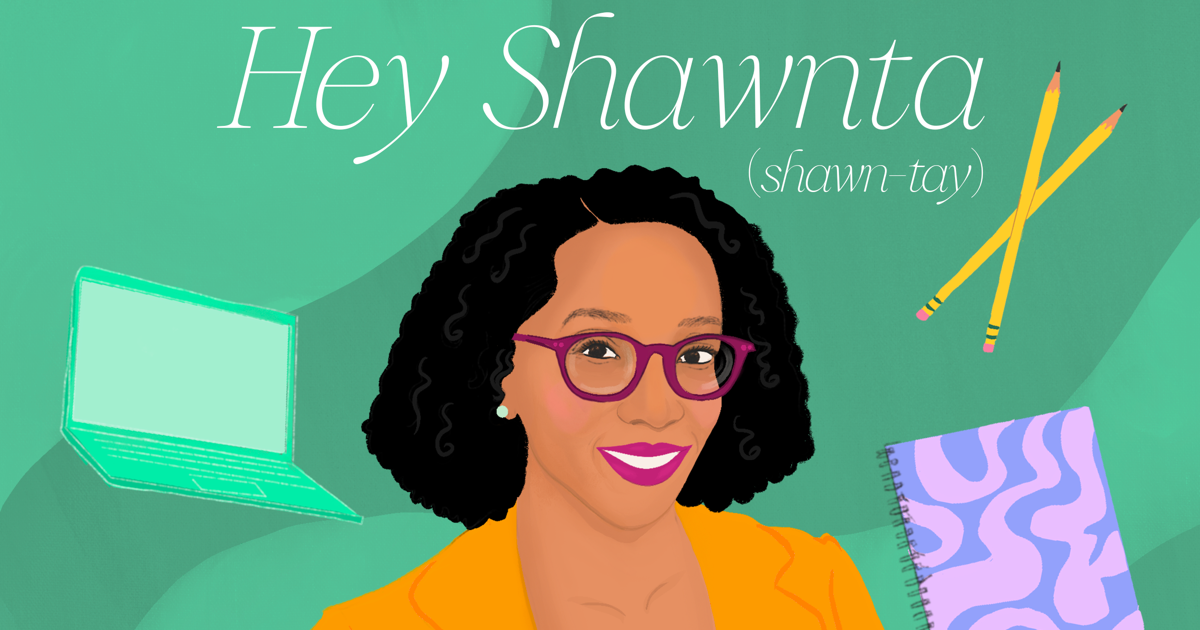
Sep 21, 2022 2:58:13 PM
Hey Shawnta!
My principal started the year by showing us student data from last year. It was bad. All we were told was 'do better.' No real strategies, just a lot of teacher bashing. What do I do now?
Sincerely,
Stranded without Strategies
Hi, Stranded without Strategies —
Teacher bashing has never helped anyone. It doesn’t help teachers, and it most certainly does not help teachers improve student outcomes.
Although you may be irritated with your principal right now, at least the principal has looked at the data and is passionate about improving. As a teacher, you are the boots on the ground that will make the learning happen. Since school data is not where it needs to be, there are apparent skill gaps in instruction or classroom environment if the data is behavior data.
Review the data the principal shared and think about how that data connects to your classroom. Reflect upon where you wanted to do better regarding the data. Next, schedule a meeting with your principal and share that you want to improve students' outcomes. Ask if there will be training or if there is a teacher who is demonstrating success with whom you could speak about strategies.
If you don’t want to approach your principal or if your principal isn’t helpful, talk with other teachers to see what their plans are. They might have found a resource to use that will help with student outcomes.
Last, do your own research. I know you probably do not want to speak all of your free time searching for resources, but sometimes you have to take the time to find your own solutions when they aren't provided. And, if this is the category you are in, you might consider looking into switching to another school next school year.
Shawnta
Shawnta (Shawn-tay) S. Barnes, also known as Educator Barnes, is a married mother of identical twin boys. She navigates education from not only the educator’s perspective but also the parent’s perspective. She has been an educator for nearly two decades. Shawnta works with K-12 schools, universities, & education adjacent organizations through her education consulting business Blazing Brilliance. She is an adjunct college professor, supervises student teachers, Indy Kids Winning Editor-in-Chief, Brave Brothers Books Co-founder, & CEO, and Brazen Education Podcast host. She holds five education licenses: English/language arts 5-12, English to speakers of other languages P-12, library/media P-12, reading P-12, and school administration P-12, and she has held a job in every licensed area. Previously, she has served as a school administrator, English teacher, English learners teacher, literacy coach, and librarian. She won the 2019 Indiana Black Expo Excellence in Education Journalism Award. In 2023, she completed her doctorate in Literacy, Culture, and Language Education with a minor in Learning Sciences. She is an urban gardener in her spare time and writes about her harvest-to-table journey at gardenershicole.com. To learn more about Shawnta, visit educatorbarnes.com.
Few issues in education spark more tension and debate than standardized testing. Are they a tool for equity or a burden on students? A necessary check on school systems or a flawed measure of...
Charter schools are public schools with a purpose. Operating independently from traditional school districts, they're tuition-free, open to all students, and publicly funded—but with more flexibility...
Despite the benefits of a diverse teaching force, prospective teachers of color fall out of our leaky preparation pipeline at every stage: preparation, hiring, induction, and retention. Here’s what...
Ed Post is the flagship website platform of brightbeam, a 501(c3) network of education activists and influencers demanding a better education and a brighter future for every child.
© 2020-2025 brightbeam. All rights reserved.
Leave a Comment